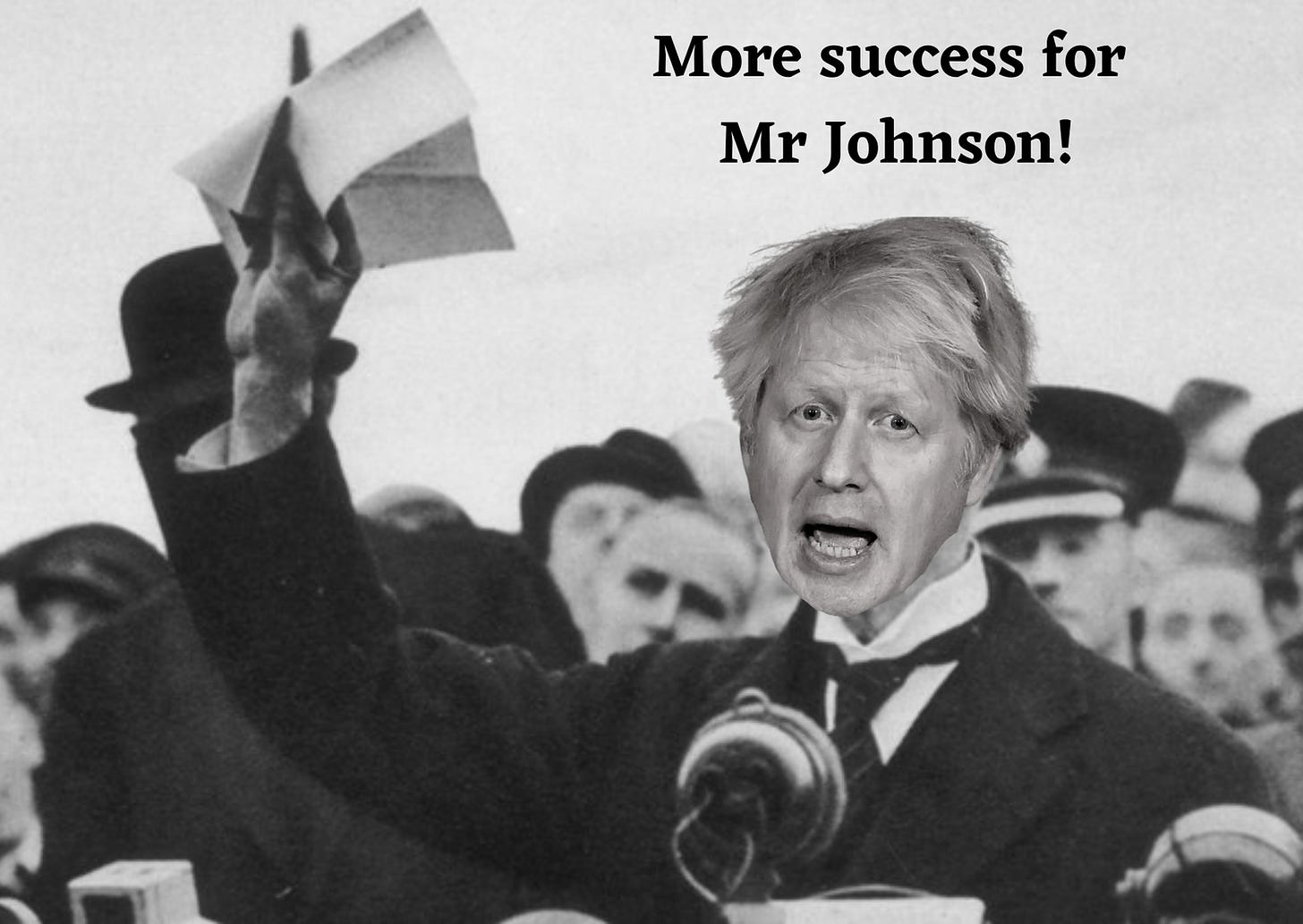The Pro-Fume-NO affairs: Why the ‘scandal’ is dead in British politics and newspapers deserve a lot of the blame
In 2021, John Profumo would just shrug, offer a self-justifying statement, then fire some civil servants as a distraction.
Read to the end for some newsletter recommendations.
The Dutch government resigned on mass this week after a colossally cruel set of child benefit policies saw thousands of families wrongly-branded benefit fraudsters.
The decision by Prime Minister Mark Rutte and his colleagues was shocking to many people in Britain because we have become so used to politicians who brazen their way through scandals, failings, and fuckups.
In reality, Rutte’s party is polling well, remains in place as a caretaker administration, and looks set to win the forthcoming elections, but even gesturing towards responsibility felt revelatory.
Gavin Williamson is still Education Secretary despite last summer’s exams clusterfuck, the ongoing free school meals scandal, and the cloud of general incompetence that surrounds him. His time as Chief Whip clearly stocked his cabinets with plenty of skeletons to rattle at anyone who wants to dislodge him.
Matt Hancock remains Health Secretary regardless of the growing mountain of evidence of corrupt and incompetent procurement, a consistent inability to hit his own idiotic targets, a test and trace system that can neither adequately test nor trace, and media performances that would be best described as a clown tumbling down a steep flight of stairs into a massive bath full of piss.
Priti Patel was made to resign from her previous ministerial job for running her own foreign policy, was found to be a bully by an official report (which was flat out ignored by the Prime Minister), just oversaw her department loss of thousands upon thousands of piece of crime data and… she’s still Home Secretary.
But worse than all those examples is Boris Johnson’s continuing presence in Number 10. It’s despite — and this is a partial list — the Jennifer Arcuri affair, his endless support for Dominic Cummings during his former advisor’s flouting of the government’s own Covid rules, his own bicycle-powered ignorance, his utter contempt for the Ministerial Code, the reams of evidence that he has taken suspect donations from Russian sources, and most of all that fact that his leadership has led the UK to the cusp of 90,000 Covid deaths at the time of writing.
Boris Johnson is not the Churchill of his imagination, he is Neville Chamberlain, reliving a groundhog day mix of Munich Agreement and Dunkirk over and over again.
And yet… the newspapers are not filling with articles calling for the cabinet to resign or even for the Prime Minister to go. Despite feints towards castigating the government, front-pages have frequently talked up ‘hope’ based on false or overblown promises dribbled into the ears of compliant political correspondents by Westminster sources who are never held accountable for the fiction they spin.
Boris Johnson — a proven liar and cheater who uses buffoonery and archaic language as chaff to distract from the cold pig iron of his personal ambition — is time and time again presented in the press as a family man (but just how big is that family?) and someone who cares deeply about “his people”. The last part is true only if you realise that his “people” are the coterie of pals he made at Eton and Oxford, the media barons who have propped him up, and the donors to whom he owes so much.
The newspaper editors — especially titles like The Times and The Guardian — will argue that they carry page after page of investigations into the government’s failings. But just as Bruce Schneier coined the term ‘security theatre’ to mean measures that give the impression of safety without delivering it, the newspapers are offering ‘scrutiny theatre’ — the investigations are rarely sustained, joined up, or matched with anger on the front-pages or from the mealy-mouths of the columnist class.
The Times is Tory from head to toe. The Guardian and The Observer are still breathing an overdramatic sigh of relief that the ‘grown-ups’ are now in charge of the Labour Party, even as Sir Keir Starmer, a man with all the charisma of a beige paint chart, sat-navs the party of the workers ever further into the lower intestines of big business.


The Daily Mirror — another paper allegedly linked to the labour movement — published a story this week about how ‘outraged’ a woman was to see a van driver taking a piss on a country lane.
The Sun is a rag. The Daily Star publishes front-pages that attack the government but crack the inside and it’s as reactionary as any other tabloid.
The Daily Telegraph moves further and further into the gutter with every passing day and is, to all intents and purposes, a fascist fanzine. The Daily Express is the same but with more stories about the weather.
If John Profumo, he of the Profumo Affair, was a minister in today’s government, the revelation that he was sleeping with a woman who was also sleeping with a Russian military officer, thereby leading to a national security concern, would barely cause a ripple. He’d issue a brief statement. The Prime Minister would promise an independent inquiry, receive the results of that inquiry, and then decide that the Minister was a little silly but should carry on.
Shame is generally a bad thing, but for politicians, it was once a good handbrake on their worst excesses. Even the one involved in the squalid little scandals of the Major-era were required to resign and faced pressure from the press, public, and fellow political operators to do so. Boris Johnson’s administration takes a Jackson Pollock approach to scandal — peppering the paper with so much paint that the true extent of its venality, corruption, and contempt is obscured. By the time people have got their heads around one failure, fuck-up, or scandal another has arrived.
Defenders of the current state of the British press and media will burble on about its role in holding power to account and the necessity of a “free press”. I don’t argue with either of those ideas in principle but I simply don’t believe that’s what we’ve actually got. British newspapers are like Premier League teams — controlled by ultra-rich, ultra-disconnected, and often foreign owners, paying the stars huge wages while the rest of their workforce is underpaid — and media ‘success’ is as rigged and a predictable as any football season.
In that environment, politicians have little to fear because they know the press is neither free nor genuinely ferocious. Ministers realise that a press storm can be weathered, that much of the criticism they do get in the pages of the newspapers is merely scrutiny theatre on which the curtain will soon fall.





